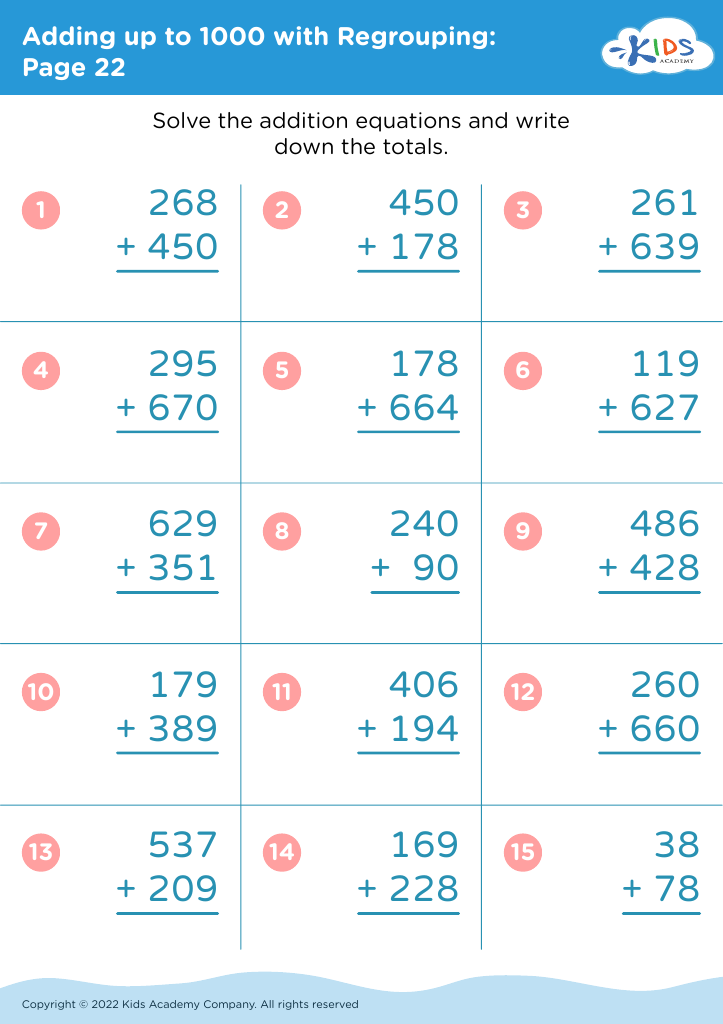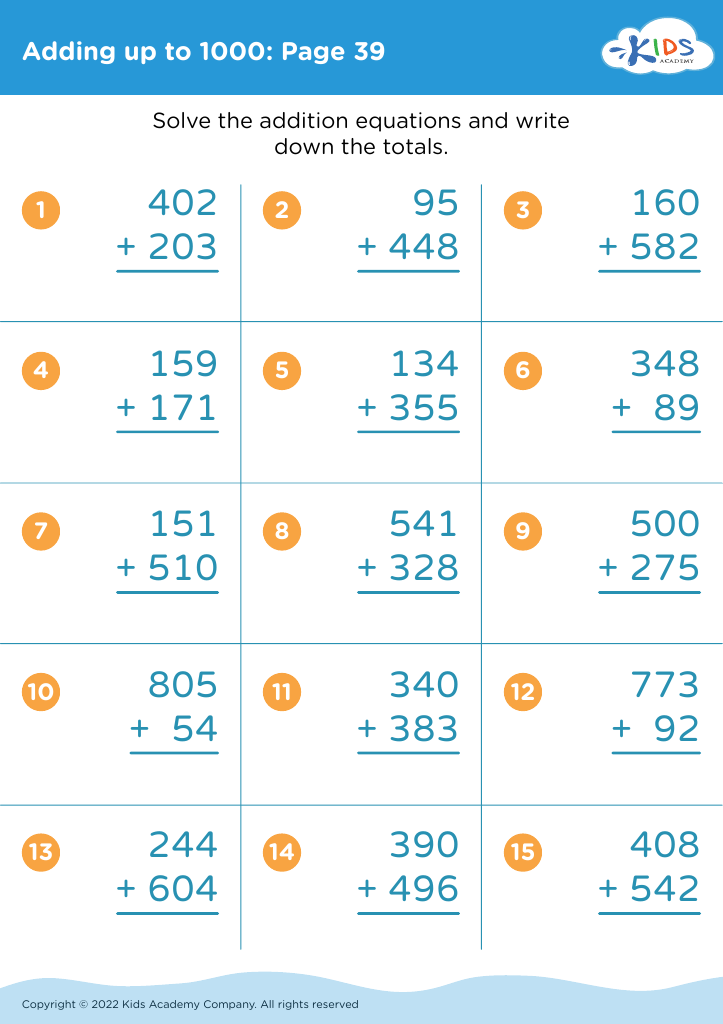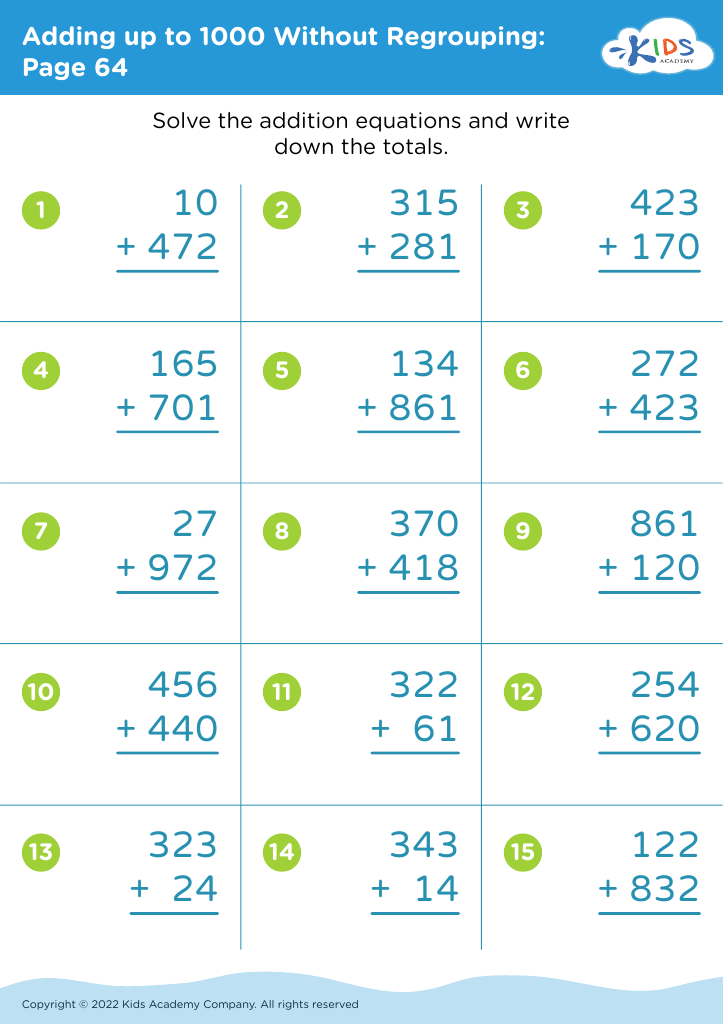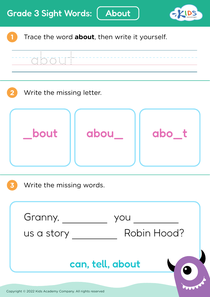Number Sequencing Grade 3 Addition Worksheets
5 filtered results
-
From - To
Enhance your third grader's math skills with our engaging Number Sequencing Addition Worksheets! Designed specifically for Grade 3 students, these worksheets focus on developing crucial addition and sequencing abilities essential for building a strong mathematical foundation. Through colorful visuals and interactive exercises, children will improve their number recognition, addition techniques, and sequencing skills while enjoying the learning process. Each worksheet caters to various learning styles, making it a valuable resource for both teachers and parents. Explore our comprehensive collection of worksheets to support your child's math journey and boost their confidence in mastering number sequencing and addition concepts today!
Parents and teachers should care about number sequencing in Grade 3 addition because it lays the foundational skills necessary for more complex mathematical concepts. At this stage, students move beyond simple counting and begin to understand the relationships between numbers, which is crucial for developing effective problem-solving skills. Number sequencing helps children recognize patterns, enhancing their ability to mentally calculate and predict outcomes in addition.
Moreover, mastering number sequencing supports the comprehension of place value, which is essential as they progress to multi-digit arithmetic. By understanding how numbers relate within sequences, children can grasp strategies for carrying and regrouping, vital for fluency in addition.
Engaging in number sequencing also promotes critical thinking, as students learn to visualize and manipulate numbers. This cognitive engagement fosters a positive attitude towards math, encouraging a growth mindset; students see challenges as opportunities for learning rather than obstacles.
Additionally, involved parents and teachers can create a supportive environment, encouraging collaboration and shared learning experiences. By prioritizing number sequencing, we prepare students not only for future math success but also equip them with valuable life skills, such as logical reasoning and analytical thinking. This foundational knowledge serves them well in everyday situations and more advanced academic pursuits.




















